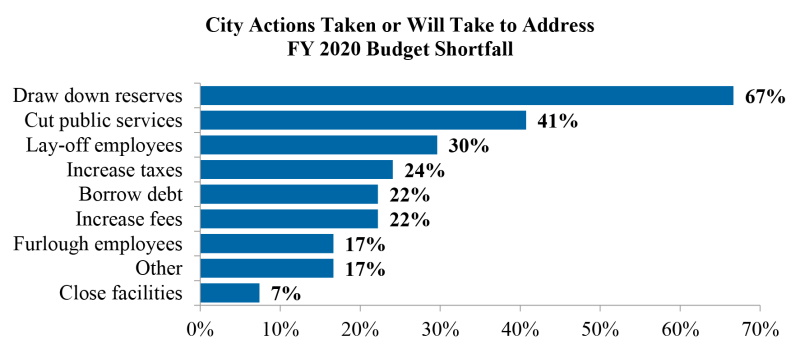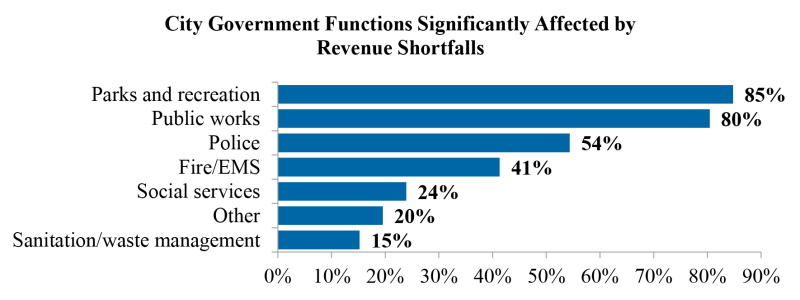Kentucky Cities Could Face an $85 Million Budget Shortfall.
Kentucky cities face an estimated collective budget shortfall of $85 million in Fiscal Year 2020 as a result of lost tax, utility, and other revenues due to COVID-19. Budgets must be balanced by June 30, 2020, so cities will soon be forced to reduce services and cut expenditures if Congress does not act.
A survey conducted last week by the Kentucky League of Cities found that nearly two-thirds of the cities facing a budget deficit this year will draw down reserves. However, that alone will not plug the financial hole COVID-19 has caused in Kentucky cities. Four in 10 cities will cut public services, while nearly one-third will lay-off employees. More than 20% of these cities will increase taxes, borrow debt, or increase fees before the end of the fiscal year. Nearly as many will furlough employees or take other actions, such as freezing hiring and/or delaying public works projects. Seven percent (7%) will close facilities, such as public pools.

Fiscal Year 2021, which begins July 1, 2020, is projected to be even worse for Kentucky cities. The anticipated financial shortfall for all municipalities is a collective $180 million, forcing many to take even more drastic action.
The budget crunch is expected to hit city parks and recreation (85%) and public works (80%) the hardest, but even police, fire, social services, and sanitation will be significantly affected.

With restaurants closed, travel restricted, and major events canceled, local economies are suffering significant tourism losses. A UK economist reports that the cancelation of the Keeneland Spring Meet resulted in a $102 million hit to economy of that city and the surrounding area. Postponement of the Kentucky Derby eliminated the $410 million economic impact it has to the Louisville region in May.
Large cities are not the only ones negatively impacted by the COVID-19 pandemic. Only 11% of city officials representing municipalities with a population of 5,000 or less believe they will not have a pandemic-related budget shortfall next year.
Cities also face a decline in municipal road aid. As gas usage has plummeted, motor fuels tax revenue has declined. Municipalities will receive between $4.5 million and $7.5 million less in road aid than budgeted this fiscal year, and the first two quarters of FY 2021 will be down 7.4%. That means cities will have less to spend on road projects and to maintain city streets.

